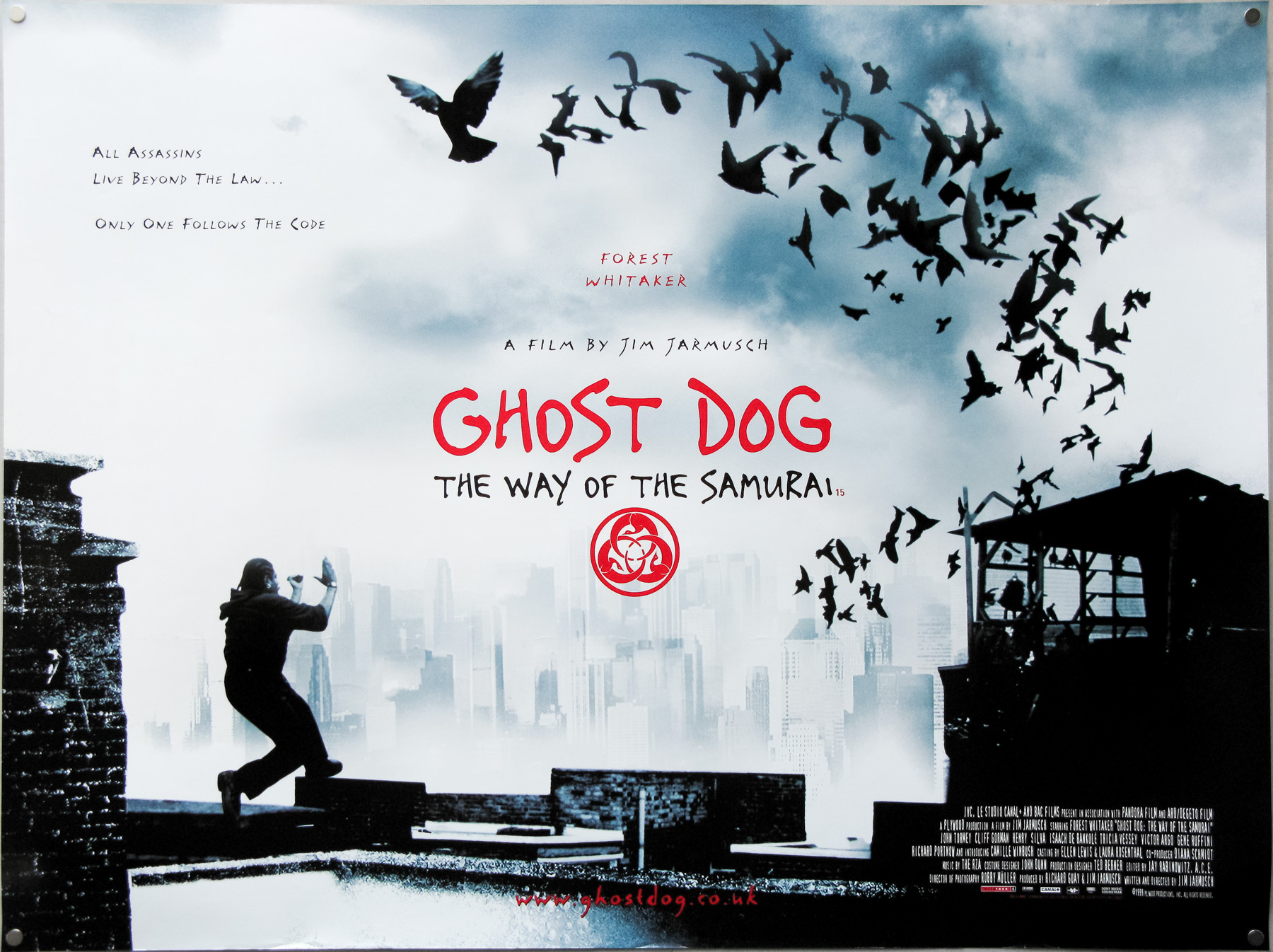
Al and I went to see a 35mm screening of 1999’s Ghost Dog: The Way of the Samurai. I noted a few days ago that I often forget it was part of the “class of ‘99” – a great year for movies that included:
- Fight Club
- The Matrix
- Eyes Wide Shut
- Office Space
- Magnolia
- But I’m a Cheerleader
- The Virgin Suicides
- Being John Malkovich
- The 13th Warrior
- Boys Don’t Cry
- Election
- Mystery Men
- Three Kings
- The Limey
- Ravenous
- Summer of Sam
1998 hadn’t been a slouch, either:
- The Big Lebowski
- The Thin Red Line
- Buffalo ‘66
- Ronin
- A Simple Plan
- Run Lola Run
- The Opposite of Sex
- Smoke Signals
… and 2000 kept did okay:
- American Psycho
- Memento
- Almost Famous
- Crouching Tiger, Hidden Dragon
- O Brother, Where Art Thou?
- Boiler Room
- Battle Royale
- Amores Perros
- The Way of the Gun
I picked some of the ones I did because we reaped something wonderful from the popularization of the indy sensibility. Reservoir Dogs had played twice in my town in 1992, first in its art house run and then in the cineplexes when it got a wider distribution deal. It took a few years for that sensibility to thoroughly saturate mass culture and then begin to attract big studio money, but it eventually got there. Maybe my own tastes broadened, but my sense is that something raw and vital found expression over the course of the ’90s.
Ghost Dog is of a piece with a number of the fascinations of the era, and with its postmodern “toss the genres in a blender” sensibilities. Roger Ebert picked up on it in his own review:
“The whole story is so strange, indeed, that I’ve read some of the other reviews in disbelief. Are movie critics so hammered by absurd plots that they can’t see how truly, profoundly weird ‘Ghost Dog’ is?”
… and the Charlie Kaufman Epoch had just begun.
Ebert picked up on something else:
“His profound sadness, which permeates the touching Whitaker performance, comes from his alienation from human society, his loneliness, his attempt to justify inhuman behavior (murder) with a belief system (the samurai code) that has no connection with his life or his world. Despite the years he’s spent studying The Way of the Samurai, he doesn’t even reflect that since his master doesn’t subscribe to it, their relationship is meaningless.”
That’s the thing that I took away from my first viewing, over 20 years ago, and found again with last night’s viewing.
There are flickers, in a few scenes between Ghost Dog and people on the street perhaps most especially with RZA’s brief walk-on, of a hidden world. And Ghost Dog is undeniably competent – more competent than I remembered before re-watching – but at the center of it all is whatever brokenness led to him making himself whole with his adopted code. It makes the movie a wonderful opportunity to reflect on our own codes and our own sense of purpose, however we’ve found it.
I think that was perhaps one of the best parts of those few years in Hollywood: There was this Tarantino-inspired eclecticism of style, “weird” was pretty normal compared to the ’80s, and the best movies of that time were also trying to find some sort of raw, emotive truth in the middle of their weirdness.